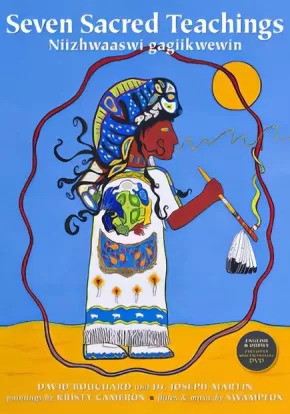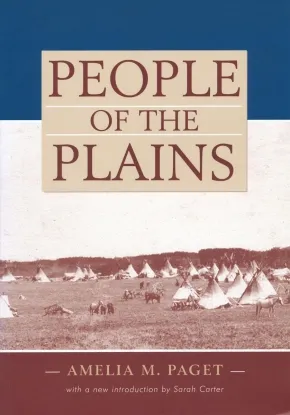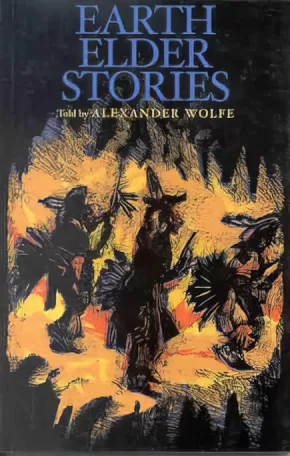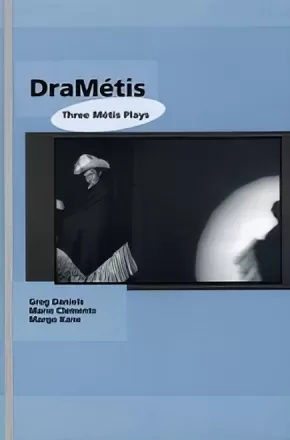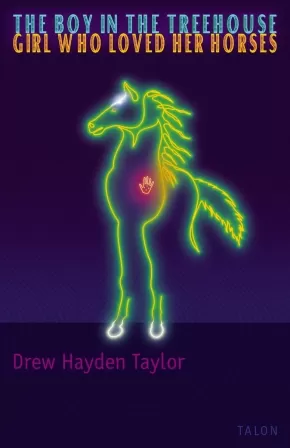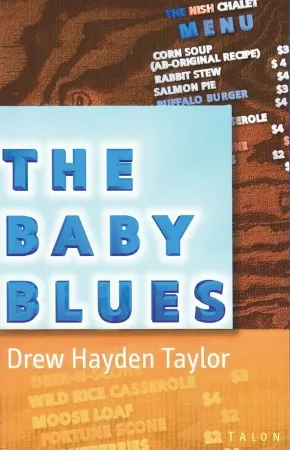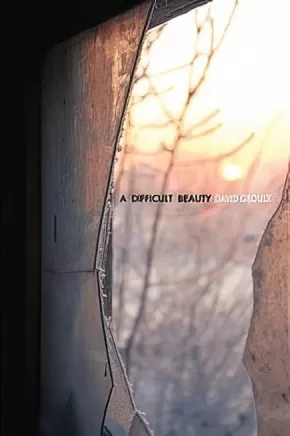
Ojibway (Ojibwe)
121
-
128
of
128 Results;
Sort By
Go To
of 9
Seven Sacred Teachings: Niizhwaaswi gagiikwewin
$24.95
Artists:
Format:
Hardcover
Text Content Territories:
Indigenous Canadian;
Reading Level: N/A
ISBN / Barcode: 9780978432720
Synopsis:
Synopsis:
Seven Sacred Teachings is a message of traditional values and hope for the future. The Teachings are universal to most First Nation peoples. These Teachings are seen in school communities from coast to coast across North America. They are a link that ties all Native, Inuit and Métis communities together.
The seven teachings include: respect, humility, love, truth, honesty, wisdom and courage. The stories in the book provide an example of how each teaching came to be.
Educator Information
Seven Sacred Teachings has been produced in several languages. This edition is in English and Ojibwe.
This resource is also available in French: Les Sept enseignements sacrés
People of the Plains
$14.95
Format:
Paperback
Text Content Territories:
Indigenous Canadian; First Nations; Anishinaabeg; Ojibway; Saulteaux; Cree (Nehiyawak); Plains Cree; Métis;
ISBN / Barcode: 9780889771598
Synopsis:
Synopsis:
Amelia McLean Paget was born in 1867 at Fort Simpson, In what is now the Northwest Territories. Her father, William McLean, was a Scot involved in the fur trade and her mother, Helen Murray, belonged to an illustrious Métis famly which had been active in the fur trade for generations. Amelia's life spanned some of the most tumultuous events in the West, including the disappearance of the buffalo, the North-West Resistance, and the establishment of the reserve system. She had a more sympathetic appreciation of Aboriginal culture than is to found in many of her contemporaries. In People of the Plains (first published in 1909), she records her observations of the customs, beliefs, and lifestyles of the Plains Cree and Saulteaux among whom she lived. She died in Ottawa in 1922.
Additional Information
78 pages | 6.75" x 9.75" | Paperback
Earth Elder Stories
$14.95
Format:
Paperback
Text Content Territories:
Indigenous Canadian; First Nations; Anishinaabeg; Ojibway; Saulteaux;
ISBN / Barcode: 9780920079355
Synopsis:
Synopsis:
Alexander Wolfe is a Saulteaux/Ojibwa storyteller and the keeper of his family's oral history. These stories belong to his family and include accounts of how the descendents of Pinayzitt, a Saulteaux leader who lived in the Northwest Territories of Canada and the Great Plains of the United States in the 1800s, lived on the land, survived the smallpox and flu epidemics, signed treaties, and were confined to reservations.
The stories blend history with legend and prophecy, giving both the equal weight they occupy in Native oral tradition. In their retelling, Wolfe carries out his responsibility of passing on his family's stories to the next generation, as well as encouraging Natives to record their histories and non-Natives to understand the significance and lessons of these tales.
Earth Elder Stories has proven an excellent resource for students of Native Studies, history, linguistics, and literature.
The Buz'Gem Blues
$16.95
Format:
Paperback
Text Content Territories:
Indigenous Canadian;
Reading Level: N/A
ISBN / Barcode: 9780889224629
Synopsis:
Synopsis:
The Buz’Gem Blues is the third play in Drew Hayden Taylor’s ongoing zany, outrageous, often farcical examination of both Native and non-Native stereotypes in what is to become what he calls his “Blues Quartet.”
Marianne has talked her mother, Martha, into attending an Elders conference with her, where she is to be used as a resource person, even though Martha doesn’t believe she has anything to offer anyone. Held in a college setting, the keynote paper of the conference is a dissertation on “the courting, love, and sexual habits of contemporary First Nations people as perceived by Western Society,” delivered by none other than a “Professor Savage.” Just to keep the caricatures in balance, Savage’s nemesis throughout the action is a young Native man, replete with dark sunglasses and a Mountie coat, who goes by the name “The Warrior Who Never Sleeps.”
The Buz’Gem Blues is not a play about clichés with which we have become so familiar that we recognize them as stereotypes instantly, but rather about how our ritualized and institutionalized systems of maintaining and policing those clichés prevent us from recognizing our common humanity within each other.
Additional Information
128 pages | 5.50" x 8.50" | Paperback
DraMétis: Three Métis Plays
$19.95
Format:
Paperback
Text Content Territories:
Indigenous Canadian; Métis;
ISBN / Barcode: 9780919441941
Synopsis:
Synopsis:
DraMétis is the first anthology to focus on the emerging discipline of Métis drama. The pieces have all been previously produced and highlight the diversity of Métis drama being written and performed in Canada.
The Boy in the Treehouse / Girl Who Loved Her Horses
$18.95
Format:
Paperback
Text Content Territories:
Indigenous Canadian; First Nations; Anishinaabeg; Ojibway;
ISBN / Barcode: 9780889224414
Synopsis:
Synopsis:
In this collection of two plays about the process of children becoming adults, Drew Hayden Taylor works his delightfully comic and bitter-sweet magic on the denials, misunderstandings and preconceptions which persist between Native and Colonial culture in North America.
In “The Boy in the Treehouse,” Simon, the son of an Ojibway mother and a British father, climbs into his half-finished tree house on the vision-quest his books say is necessary forhim to reclaim his mother’s culture. “It’s a Native thing,” he informs his incredulous father (who tells him he’d never heard of such a thing from his wife): “Only boys do it. It’s part of becoming a man.” Of course, what with the threats of the police, the temptation of the barbeque next door, and the distractions of a persistent neighbourhood girl, Simon probably wouldn’t recognize a vision if he fell overit.
“Girl Who Loved Her Horses” is the Native name for the strange and quiet Danielle from the non-status community across the tracks, imbued with the mysterious power to draw the horse “every human being on the planet wanted but could never have.” She is and remains an enigma to the people of the reservation, but the power of her spirit remains strong. Years later, a huge image of her horse reappears, covering an entire side of a building in a blighted urban landscape of beggars and broken dreams. The eyes of her stallion, which once gleamed exhilaration and freedom, now glare with defiance and anger. Danielle has clearly been forced to grow up.
With these two plays, Taylor rediscovers an issue long forgotten in our “post-historical” age: the nature of, and the necessity for, these rites of passage in all cultures.
Additional Information
160 pages | 5.50" x 8.50" | Paperback
The Baby Blues
$16.95
Format:
Paperback
Text Content Territories:
Indigenous;
Reading Level: N/A
ISBN / Barcode: 9780889224063
Synopsis:
Synopsis:
The Baby Blues is Drew Hayden Taylor’s highly wrought farce of patrimony in a stifling, politically correct, post-colonial milieu of “fancy dancers” of every stripe on the powwow trail. In juxtaposing three generations of careless wandering hedonists, progenitors of a string of offspring from their six-night stands, with their erstwhile naïve women partners who are always left holding the bag, the “big questions” of heritage, family, cultural context and personal identity are ruthlessly stripped of their conventional meanings and become so much useless, embarrassing roadkill on the highway of life.
Cast of 3 women and 3 men.
Additional Information
96 pages | 5.50" x 8.50" | Paperback
A Difficult Beauty
$17.00
Format:
Paperback
Text Content Territories:
Indigenous Canadian;
ISBN / Barcode: 9781894987578
Synopsis:
Synopsis:
David Groulx’s latest collection offers his readers a handful of poems as cutting and brilliant as glass shards, offering glimpses of the anger, pain and lost beauties of his ancestors. These poems cut deep with their clear-eyed honesty, their stripped away pain and suffering. A subtle weaving of black humour and fleeting touches of beauty, as well at the careful craftsmanship of the writing make these poems iconic. This is a collection that should not be missed.
Reviews
"This collection of poetry is a passionate snapshot of poignant aspects of life on the rez depicted in simple scenes that are propelled forward with a sparse economy of language. It is little wonder that Groulx has won awards for his poetry and it has appeared globally in over one hundred periodicals." - Canadian Literature
Sort By
Go To
of 9

